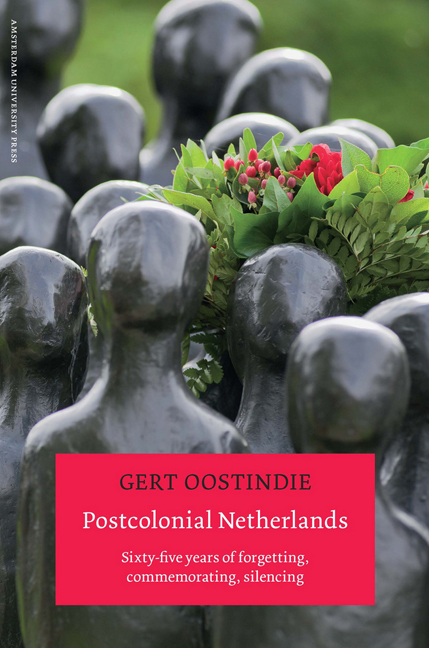Book contents
- Frontmatter
- Contents
- Introduction
- 1 Decolonization, Migration and the Postcolonial Bonus
- 2 Citizenship: Rights, Participation, Identification
- 3 The Struggle for Recognition: war and the Silent Migration
- 4 The Individualization of Identity
- 5 Imagining Colonialism
- 6 Transnationalism: a Turning Tide?
- 7 An International Perspective
- 8 ‘Postcolonial’ (in the) Netherlands
- Notes
- Bibliography
- Acknowledgements
- Index of People, Organizations and Memorial Sites
3 - The Struggle for Recognition: war and the Silent Migration
Published online by Cambridge University Press: 20 January 2021
- Frontmatter
- Contents
- Introduction
- 1 Decolonization, Migration and the Postcolonial Bonus
- 2 Citizenship: Rights, Participation, Identification
- 3 The Struggle for Recognition: war and the Silent Migration
- 4 The Individualization of Identity
- 5 Imagining Colonialism
- 6 Transnationalism: a Turning Tide?
- 7 An International Perspective
- 8 ‘Postcolonial’ (in the) Netherlands
- Notes
- Bibliography
- Acknowledgements
- Index of People, Organizations and Memorial Sites
Summary
Using a variation of the French warning at level crossings, Un train peut en cacher un autre, the French-Algerian historian Benjamin Stora once described how one memory (of the Algerian war of independence) may obscure another (of French colonial rule in Algeria): Quand une mémoire (de guerre) peut en cacher une autre (coloniale). The emotions around the final bloody phase of French colonial rule in Algeria are still so fresh and powerful, that to this day France is barely able to view this period with any detachment – and is, therefore, a long way from being able to explore the preceding colonial history seriously.
The memory wars regarding the Netherlands East Indies are not nearly as extreme. Unlike France, the Netherlands is no longer fiercely divided on the subject of the final years of colonialism in the East Indies. The Japanese occupation is regarded primarily in terms of suppression by an alien power and the suffering of the Europeans. It has been established that Indonesian gangs perpetrated terrible violence during the so-called bersiap period of the revolution. At the same time, it has become more broadly and gradually less controversially accepted that during euphemistically termed ‘police actions’ in the first few years after the war – as if the problem were a case of temporarily maintaining order in a colony – Dutch troops were involved in war crimes and the Netherlands had ‘stood on the wrong side of history’. But what about before the arrival of the Japanese? There was colonialism. First there was the voc, then the East Indies. The idea that ‘something magnificent’ was done in that part of the world is rarely bragged about, but there is no reason not to think it sometimes, quietly, and occasionally to celebrate it in style. The colonial period is neither a taboo nor a black hole.
The fact is that the final stages of the colonial period still attract more attention in the Netherlands than the 350 years that preceded them. This chapter is, above all, about the memory of that final phase, which continues to divide opinion in the Netherlands today, but to a far lesser degree than in France.
- Type
- Chapter
- Information
- Postcolonial NetherlandsSixty-Five Years of Forgetting, Commemorating, Silencing, pp. 73 - 100Publisher: Amsterdam University PressPrint publication year: 2012



